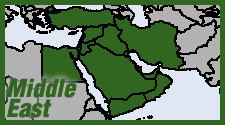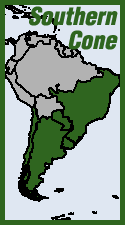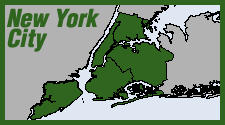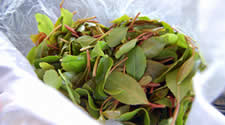Posted on January 6th, 2014 by Global Ganja Report and tagged
cartels,
Mexico.
 A "commando" of six gunmen gained access to a Mexican prison after midnight on Jan. 3, killed four inmates in their sleep, and then tried to shoot their way out, sparking a shoot-out with guards that left five of the attackers dead. The assialants infiltrated the Social Rehabilitation Center (CERESO) in Tuxpan, disguised in uniforms of the Guerrero state Ministerial Police, telling guards they were bringing in a prisoner. Army troops were subsequently sent in to secure the facility. The slain inmates were said to be serving time for drug trafficking and kidnapping charges. (Borderland Beat, Jan. 4; BBC News, La Jornada, Jan. 3) This is the latest in a wave of cases of cartels taking their bloody turf wars to the inside of Mexico's prisons.
A "commando" of six gunmen gained access to a Mexican prison after midnight on Jan. 3, killed four inmates in their sleep, and then tried to shoot their way out, sparking a shoot-out with guards that left five of the attackers dead. The assialants infiltrated the Social Rehabilitation Center (CERESO) in Tuxpan, disguised in uniforms of the Guerrero state Ministerial Police, telling guards they were bringing in a prisoner. Army troops were subsequently sent in to secure the facility. The slain inmates were said to be serving time for drug trafficking and kidnapping charges. (Borderland Beat, Jan. 4; BBC News, La Jornada, Jan. 3) This is the latest in a wave of cases of cartels taking their bloody turf wars to the inside of Mexico's prisons.
 Turkish security forces report that they seized 150 tons of hashish in 2013, with 89 tons seized in southeastern Diyarbakir province, Turkey's Kurdish heartland. Authorities also said a somewhat improbable 56 million cannabis plants had been seized in Diyarbakir, and 382 arrested. The provincial Counter Narcotics Department called it a record-breaking year. (Trend, Jan. 9)
Turkish security forces report that they seized 150 tons of hashish in 2013, with 89 tons seized in southeastern Diyarbakir province, Turkey's Kurdish heartland. Authorities also said a somewhat improbable 56 million cannabis plants had been seized in Diyarbakir, and 382 arrested. The provincial Counter Narcotics Department called it a record-breaking year. (Trend, Jan. 9)
 New York
New York  The
The  A "commando" of six gunmen gained access to a Mexican prison after midnight on Jan. 3, killed four inmates in their sleep, and then tried to shoot their way out, sparking a shoot-out with guards that left five of the attackers dead. The assialants infiltrated the Social Rehabilitation Center (CERESO) in Tuxpan, disguised in uniforms of the Guerrero state Ministerial Police, telling guards they were bringing in a prisoner. Army troops were subsequently sent in to secure the facility. The slain inmates were said to be serving time for drug trafficking and kidnapping charges. (
A "commando" of six gunmen gained access to a Mexican prison after midnight on Jan. 3, killed four inmates in their sleep, and then tried to shoot their way out, sparking a shoot-out with guards that left five of the attackers dead. The assialants infiltrated the Social Rehabilitation Center (CERESO) in Tuxpan, disguised in uniforms of the Guerrero state Ministerial Police, telling guards they were bringing in a prisoner. Army troops were subsequently sent in to secure the facility. The slain inmates were said to be serving time for drug trafficking and kidnapping charges. ( Some hundred New Yorkers gathered in the bitter cold Dec. 27 in front of the Adam Clayton Powell Jr. State Office Building in Harlem to protest mayor-elect
Some hundred New Yorkers gathered in the bitter cold Dec. 27 in front of the Adam Clayton Powell Jr. State Office Building in Harlem to protest mayor-elect  Muslim community leaders in Texas are protesting the latest outbreak of the perennial hype over the khat plant and its supposed links to terrorism. It began when a traffic stop near Houston last year turned up two men chewing the midly psychoactive but thoroughly illegal leaf. This sparked a year-long investigation involving local, state and federal agencies that has so far resulted in more than a half-dozen arrests. The
Muslim community leaders in Texas are protesting the latest outbreak of the perennial hype over the khat plant and its supposed links to terrorism. It began when a traffic stop near Houston last year turned up two men chewing the midly psychoactive but thoroughly illegal leaf. This sparked a year-long investigation involving local, state and federal agencies that has so far resulted in more than a half-dozen arrests. The 





Recent comments
1 week 6 days ago
1 week 6 days ago
5 weeks 7 hours ago
5 weeks 6 days ago
9 weeks 6 days ago
13 weeks 5 days ago
17 weeks 5 days ago
18 weeks 3 days ago
28 weeks 3 days ago
32 weeks 4 days ago